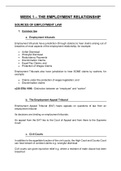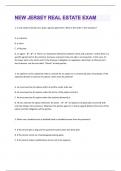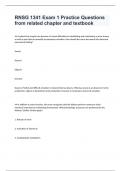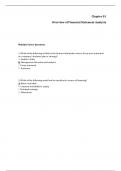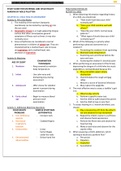Summary
Summary ** HIGH DISTINCTION** EMPLOYMENT LAW ELECTIVE REVISION NOTES - DISTINCTION ACHIEVED - (WORKSHOPS 1 - 9) ULaw
LPC Employment Law Elective Revision Notes 2021 Notes relating to Ulaw Workshop 1 - 9 WEEK 1 – THE EMPLOYMENT RELATIONSHIP WEEK 2 – WRONGFUL DISMISSAL WEEK 3 – UNFAIR DISMISSAL WEEK 4 – REDUNDANCY WEEK 5 – DIRECT DISCRIMINATION WEEK 6 – INDIRECT DISCRIMINATION, HARASSMENT AN...
[Show more]
